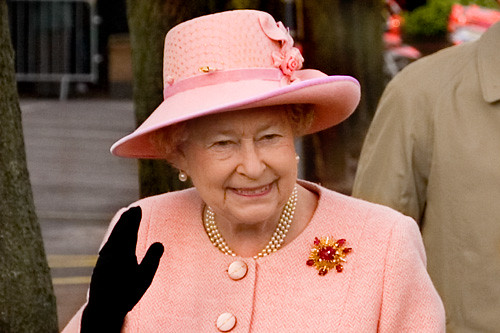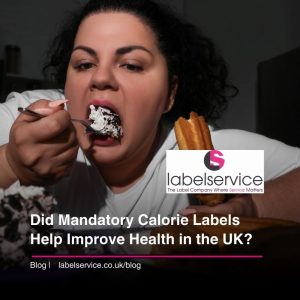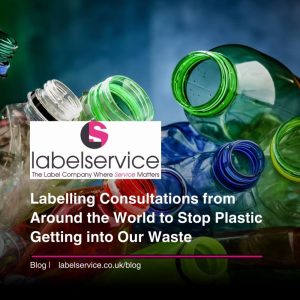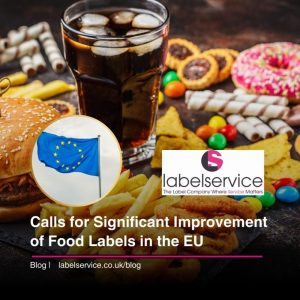News of the death of Queen Elizabeth II shocked the world on September 8, 2022. Of course, the death of a monarch sets about a chain of historic events, which the UK hasn’t experienced on a wide scale for decades. While the nation was going through its period of mourning and the rest of the world was getting used to the new verbiage (The monarch is now King Charles III, so people in foreign countries are reminding themselves to say “King of England” rather than “Queen” during this transitional period), many people aren’t aware of the changes that are taking place in the business world. It’s no secret that the Queen had endorsed many businesses over the years, but what happens to those businesses following her passing?
What is a Royal Warrant?
A royal warrant is an official acknowledgement that specific companies and merchants supply the royal household with either goods or services. Basically, these companies can say that the royal family uses their products or services and the royal family officially backs that claim up. This practice has been going on since the 1500’s, and by the 1700’s merchants with royal warrants started using the royal seal on their products and advertisements as one of the earliest types of product recognition and marketing.
The royal coat of arms displayed by these companies features a lion, representative of England, and a unicorn that represents Scotland, along with a shield divided into four quarters. In the case of royal warrants it also typically includes the words “By appointment by Her Majesty the Queen”.
Royal warrants picked up popularity during Queen Elizabeth II’s historic 63-year reign, during which she issued more than 2,000. During what is known as the Victorian Era, many of the business holders with royal warrants established the Royal Warrant Holder’s Association, and that’s where the rules and codes of conduct originated for these businesses today. Some of these rules pertain to things like how business owners can display their royal warrants and how the warrants can be used. The Royal Warrant Holder’s Association (RWHA) has went on record as saying that “Amongst other things, applicants are also required to demonstrate that they have an appropriate environmental and sustainability policy and action plan.”
At the time of Queen Elizabeth II’s death, there were more than 800 different businesses listed on the royal family’s website as having royal warrants. These companies include everything from big name brands like Burberry to things like local movers, and food and beverage companies.
How Do Businesses Get Royal Warrants?
It’s important to know that families and businesses work for decades, or even generations, to obtain a royal warrant so the appointment of a royal warrant is not only a coveted business position, but a big deal in the business world.
The first stipulation of a royal warrant is that a business has to supply either goods or non-professional services (a professional service would be something like a doctor, lawyer or banker) to a member of the royal family that has the authority to issue a royal warrant for five out of the most recent seven years, at the least. If the business meets those criteria, then they can apply for a royal warrant.
Another stipulation on royal warrants is that the relationship between the warrant-issuing monarch and the provider must be strictly professional in nature. This means that royal warrants aren’t allowed to be issued as gifts. This gives these endorsement legitimacy, and because of that they’re not issued often.
Is There a Time Limit on Royal Warrants?
It can take decades for businesses to obtain royal warrants, but they don’t actually last long. In fact, a royal warrant is only effective for 5 years. The year before a company’s royal warrant expires, the royal family reviews the company and its products and makes sure they still meet the royal standards.
The standards that the royal family enforce are ever-changing. The managing director of Huddersfield Fine Worsteds (which makes the fabric used to make the workers’ uniforms at Balmoral Castle), Ian Milligan, said before the Queen’s death “Prince Charles is pushing very hard on the sustainable side of business, and every time we apply, we have to show what we’re doing for the environment.” He’s also said that when they renewed their application prior to the Queen’s death that they were required to buy an electric van.
Renewing the application for a royal warrant is a lot of work. Ian has said that it takes a full year to gather all of the information that the renewal application requires (intricate details like waste removal and employee welfare), but businesses are glad to do the work to receive the prized endorsement.
British businesses hold the royal warrant as a prized endorsement, even if they conduct business in other countries. That’s right, royal endorsement is respected even by business owners and consumers in countries beyond the British Monarch’s realm. In particular, they’re valued in China, Japan and the United States, according to the International Business Director of the UK Fashion and Textile Association, Paul Alger. Though it may seem surprising that the royal warrant is significant in other countries, maybe especially in communist China, but Alger says “But actually the experience of most of our brands is that the royal warrant is even more valuable outside of the UK than it is inside.”
What Happens to Royal Warrants Issued During Queen Elizabeth II’s Reign?
The royal warrants issued during Queen Elizabeth II’s reign are essentially nullified now. This is because they say things like “by appointment to Her Majesty the Queen”. Now that Charles is in charge, the verbiage will need to be changed to reflect “His Majesty the King” in reference to King Charles III.
Any of the royals whose names are listed on royal warrants are either dead or hold different titles now. Even the warrants that Charles issued when he held the title of Prince are now void because he’s the reigning monarch.
What does this mean for companies who have built the brands around bearing the royal seal of approval? Their royal warrant has lapsed and they’re scrambling to renew their effective royal warrant status.
Will All of the Businesses Be Required to Apply for a New Royal Warrant All At Once?
Businesses have been provided a two year grace period during which they can apply to transfer their royal warrant status from one monarch over to the next, or to another member of the royal family.
During that two year period, the businesses are permitted to continue to use the seal and endorsement. It’s pretty likely that you’ll see businesses with the seal and endorsement from “Her Majesty the Queen” until 2024.
But after that it’s a bit uncertain what will happen. It seems unlikely that all of these businesses will be required to re-apply at once because that would be a logistical nightmare for the royal household. Applying for a royal warrant is also a time-consuming, labour-intensive process that businesses aren’t usually expected to complete more than every 5 years, so they would have to scramble to complete the process early otherwise.
Alger says that because the of the power of the monarch, he’ll likely be able to simply grant renewed endorsement status to some of the current warrant holders without requiring them to complete the renewal process. However, it’s not very likely that he’ll grant such a privilege to each of the 800+ businesses who currently hold royal warrant statuses.
Which Members of the Royal Family Have the Authority to Issue Royal Warrants?
Of course, King Charles III has the authority to issue royal warrants as the King of England. He also has the authority to name which monarchs can issue royal warrants. He’s yet to do this, but Alger guesses that the King himself will issue warrants, and that he’ll grant this authority to Prince William. As for other members of the royal family, we’ll have to wait and see.
Alger posits that business owners will likely be sent official correspondence asking whether they’d like to renew or transfer their warrant to monarch, which means that this will effectively be a request to continue selling their products or services to the new monarch.
Are There Other Monarchies That Issue Royal Warrants?
Granting private businesses royal warrants is not a trend that is exclusive to the British monarchy. Delavaux (a business that sells leather goods) holds a royal warrant from Belgium, Camiseria Burgos (a custom high-quality shirtmaker) has a royal warrant from Spain, and Georg Jensen was issued a royal warrant from Denmark. But by far the British royal warrant seems to hold the most weight globally.
This may be in part due to Queen Victoria’s efforts to connect the royal family with industry. This is a tradition that carries on to this day. For 35 years, Princess Anne has been the president of the UK Fashion and Textile Association (UKFT), and King Charles III has near expert-level knowledge on various issues that affect the agricultural industry as well as fashion and textile production.
Because the royal warrants are awarded by individual members of the royal family, each holder of a royal warrant is sort of a reflection of that royal household member’s personality. Because King Charles III is so interested in men’s fashion, he’s awarded warrants to fashion companies like Turnbull & Asser, Ettinger, Tricker’s and Anderson &Sheppard. Because of this, people are interested to find out whether Prince William will be granted the authority to give royal warrants, and who he will award them to because this decision will reflect his personality a bit, as well.
Heinz Has to Change its Ketchup Bottle Labelling
Heinz ketchup is one of the companies with a royal warrant that’s chosen to display the royal coat of arms on their products. The royal coat of arms has become an iconic part of the Heinz label were displayed both on the front and the top of each bottle.
Heinz isn’t the only company whose labelling will need changing. Other companies who have been using the royal coat of arms on their packaging include Bollinger champagne and Twinnings tea. In all, there are more than 800 different companies that currently hold royal warrants, and many of them will need to change their labels, websites and other advertisements to reflect the change and remove the coat of arms.
This is no easy task. It will take hours of work and loads of money to re-design labels and packaging, as well as websites and advertisements containing the endorsements and coat of arms. This is why companies are scrambling to make the change, as well as to re-apply for the coveted royal warrant status.
Some other companies that currently hold royal warrants who are affected by the change are:
- Coca- Cola
- Cadbury
- Unilever
- Premier Foods
- Martini
- Britvic
- Johnnie Walker
- The Famous Grouse- Matthew Gloag & Son
- Gordon’s
- Pimm’s
- Dubonnet
- Jaguar Land Rover
- Bentley
- Boots
- Hunter
- Burberry
- Clarins
- Molten Brown
- Barbour
- Mappin & Webb
Coca-Cola
The world-famous soft drink company was granted a royal warrant by Queen Elizabeth II. They state on the RWHA website that “At Coca- Cola we set out to refresh the world- in mind, body and spirit- and to inspire moments of optimism through our brands and actions.
Walkers Shortbread
This one is shocking to many people because they’re one of Scotland’s favourite snacks to enjoy with tea. They had a longstanding history of supplying the Queen with oatcakes and shortbread, so they were awarded the coveted royal warrant status, and their packaging depicts the coat of arms.
Johnnie Walker
Johnnie Walker is known as the world’s best Scotch whisky, and it had a royal warrant that was issued during the reign of Queen Elizabeth II. King Charles III is quite involved in Johnnie Walker’s new services and he opened a bottle of Johnnie Walker Princes Street last year in Edinburgh, when he was Prince of England, which was great marketing. It’s quite likely that they’ll receive a new endorsement and simply change their labelling to reflect his coat of arms in the future.
At Labelservice we specialise in custom labelling for all types of food and drink. If your products have been affect by the passing of the Queen then please feel free to contact us and we would be happy to help with the amendments and production of new food and drink labels.

















